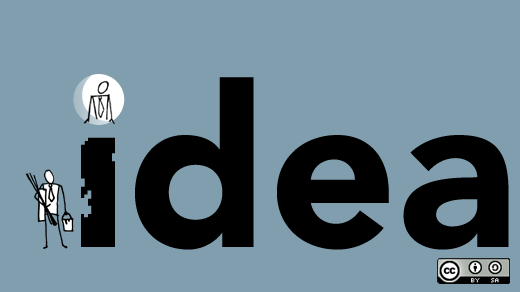On opensource.com, we talk a lot about collaboration without talking about a key ingredient for getting the maximum benefit from it: diversity. Without diversity within a collaborative group, the result is a larger quantity of the same thinking rather than the sort of dynamic interaction that creates new ideas. Joe Gerstandt addressed this problem in his SXSW talk, Great Minds Do Not Think Alike."
A generative relationship produces something that one of the members couldn't have produced alone. If we have an atom of oxygen, one of hydrogen, and one of carbon, they can interact, and under the right circumstances, form a sugar molecule. Sugar molecules have an interesting property--sweetness. It doesn't exist in any of those three atoms alone. Regardless of how much of those three atoms you have individually, it will never be sweet. But when they come together, you get sweetness.
Cognitive diversity works the same way. It equips us to come together and create sweetness. Just like other kinds of diversity, it also brings greater likelihood for tension. But there's a lot of research that shows it increases the ability of a group to process all of their information, be innovative, and solve problems better.
Other people who think differently make you crazy because they're speaking a bit of a different language. You get distressed thinking about working with those people. So you default to working with people who are like you, and you completely miss out on the magic of working with people who aren't just like you.
In his talk, Gerstandt set a scenario: "If I've got a big, stinky, complex, hair problem to solve, and I'm going to have two teams compete to solve this problem, I'm going to pull them from the same original place. For example, the graudating class of 100 from Harvard University."
The first group is the top 10% by GPA. The other team is going to be drawn at random from the other 90. Team 2, if they are able to communicated with each other, they will consistently beat team 1. Most people in the audience, when asked, expected team 2 to win. But Gerstandt pointed out that while we seem to recognzie that as common sense, we're not implementing that knowledge in our actual working teams.
The next time you're considering the dynamics of a group you're collaborating with, note the diversity of the group. Are you creating better ideas than you could alone? Or are you just working with more of yourself?
Reference: Groups of diverse problem solvers can outperform groups of high-ability problem solvers, Hong and Page







2 Comments